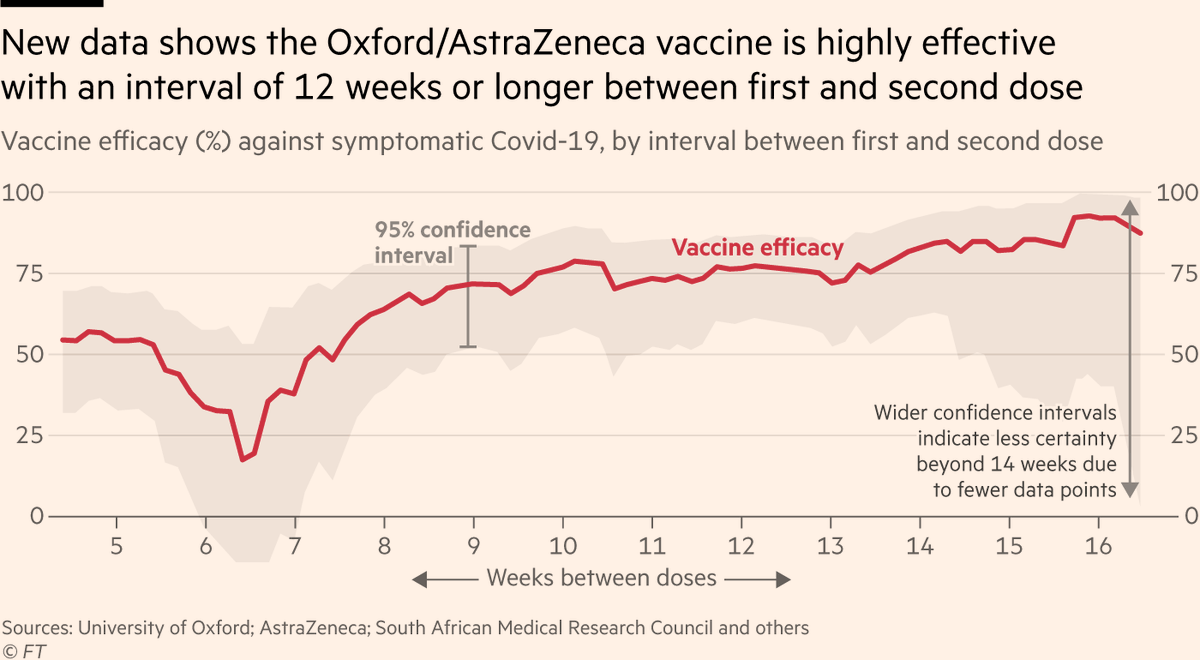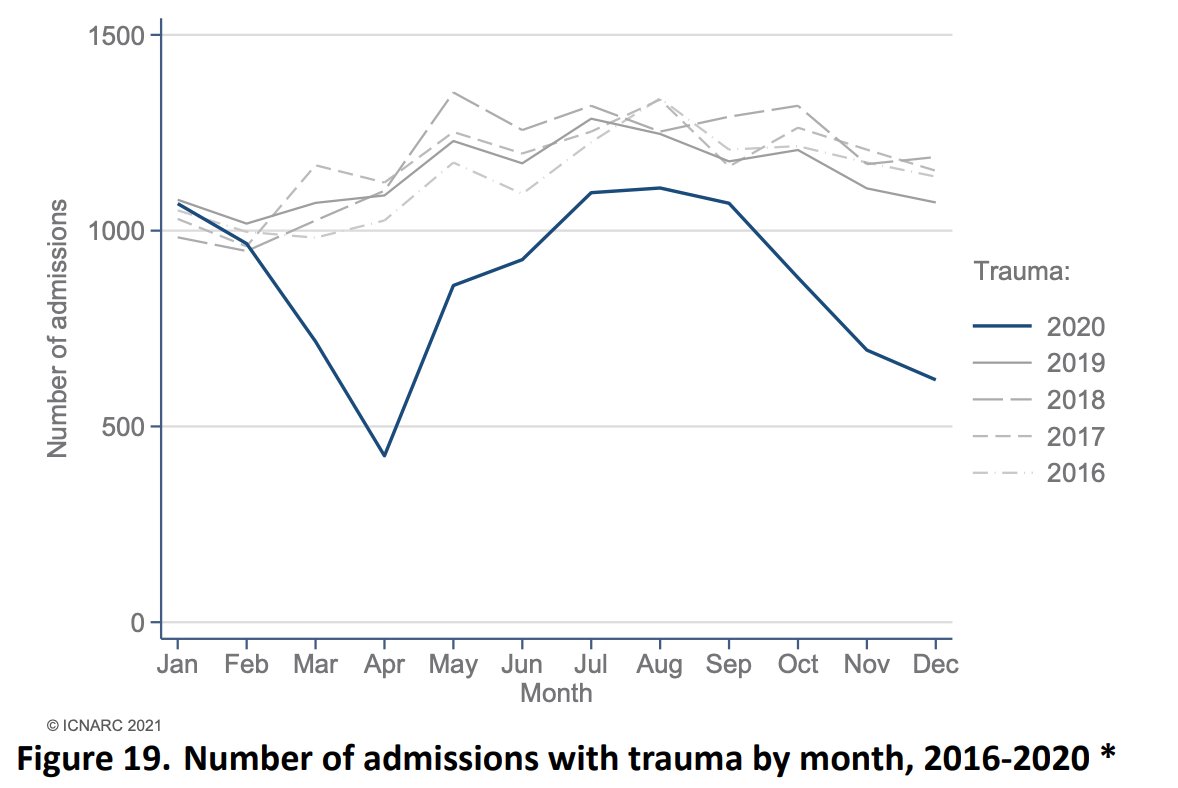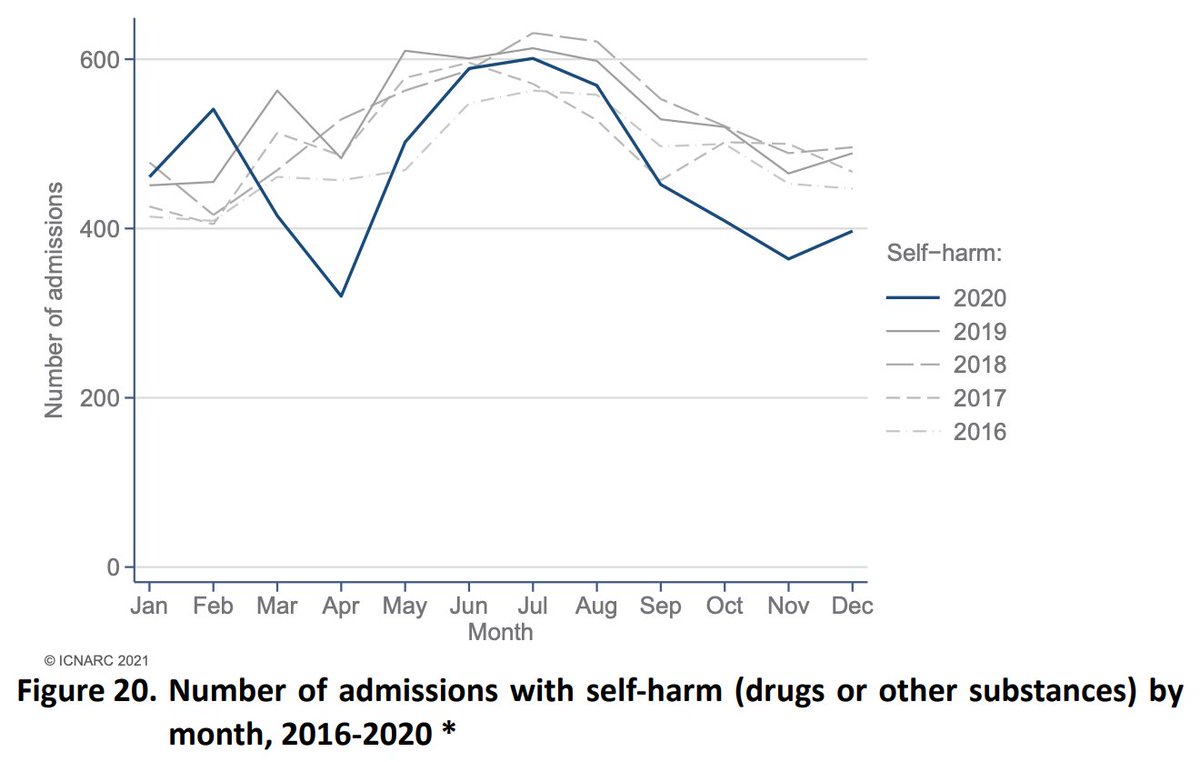
NEW: fresh data from trials in Brazil, South Africa and the UK shows the Oxford/AstraZeneca vaccine is highly effective with a 12 week gap between doses.
Efficacy is in fact much higher with a 12 week interval than a shorter gap
Story by @donatopmancini: ft.com/content/de00fe…
Efficacy is in fact much higher with a 12 week interval than a shorter gap
Story by @donatopmancini: ft.com/content/de00fe…

The data also show that a single dose delivers strong protection that — crucially — does not wane quickly.
12 weeks after the first dose, efficacy is still well above 70%.
12 weeks after the first dose, efficacy is still well above 70%.

And perhaps most importantly of all, the data found that not even one recipient of the vaccine became severely ill with Covid-19 requiring hospitalisation
Every single participant who was admitted to hospital with Covid-19 was in the placebo group
Story: ft.com/content/de00fe…
Every single participant who was admitted to hospital with Covid-19 was in the placebo group
Story: ft.com/content/de00fe…

Full paper here: papers.ssrn.com/sol3/papers.cf…
And a big thanks to co-lead-author @MerrynVoysey for talking me through some of the finer points.
Scientists who respond instantly to DMs on deadline are possibly my favourite people in the world 🤓😀🙏
And a big thanks to co-lead-author @MerrynVoysey for talking me through some of the finer points.
Scientists who respond instantly to DMs on deadline are possibly my favourite people in the world 🤓😀🙏
• • •
Missing some Tweet in this thread? You can try to
force a refresh













